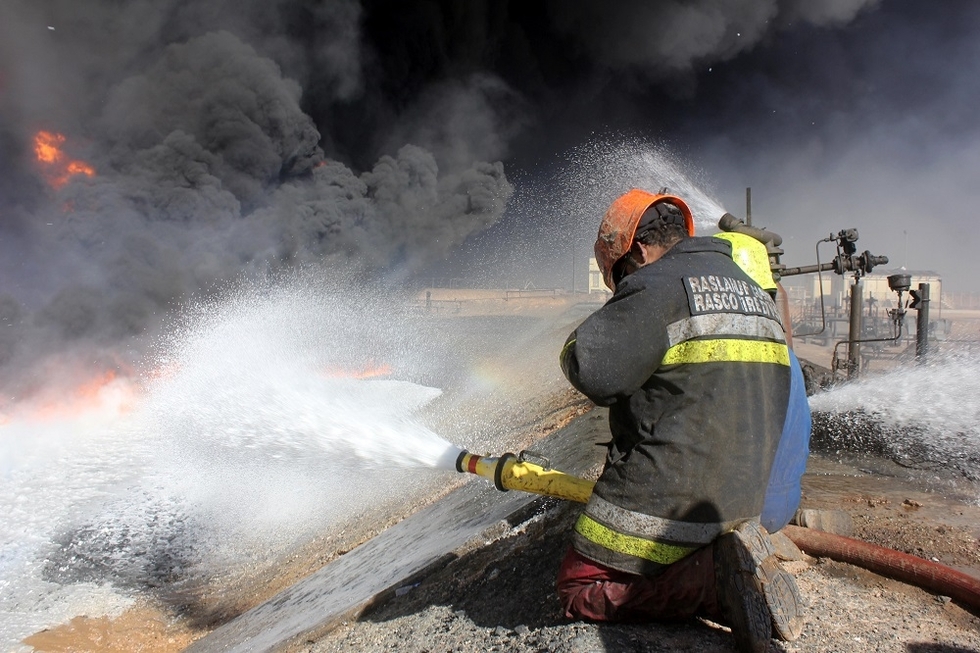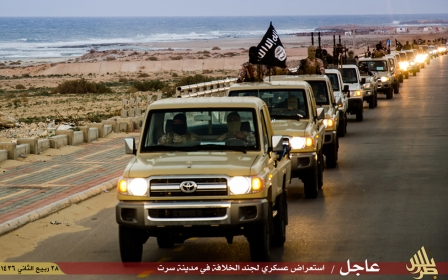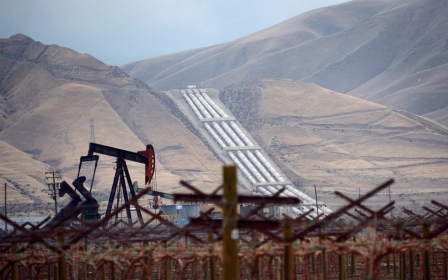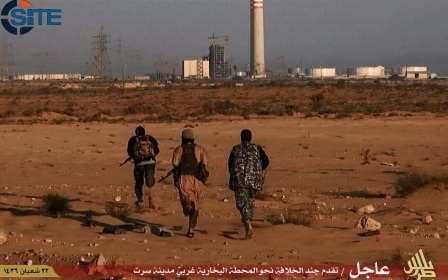Islamic State attacks key Libya oil terminal for second time in a week

The Islamic State (IS) group has attacked oil installations close to Libya's Ras Lanuf terminal on Thursday and vowed to launch more attacks in coming days, local sources told Reuters.
According to an engineer working at the oil facility and an energy official from Tobruk, at least two storage tanks from the Harouge Oil Operations company were set on fire near Ras Lanuf, a major oil terminal in the country.
Thursday’s reported attack is the third to hit Ras Lanuf this month. It comes less than a week after IS were blamed for an explosion south of the terminal that hit a major oil pipeline which runs from the Tibisti and Bayda fields, but has not been operational in more than two years.
In early January, IS also attacked Ras Lanuf and the nearby terminal of Es Sider, killing at least 18 guards and setting fire to seven oil storage tanks.
"Today [Thursday] Es Sider port and Ras Lanuf, and tomorrow the port of Brega, and after the ports of Tobruk, Es Serir, Jallo, and al-Kufra," IS fighter Abu Abdelrahman al-Liby said in a video posted on the group's official Telegram channel.
Libya's National Oil Corporation said in a statement that "fighting resumed at dawn on Thursday... in the Ras Lanouf region," referring to another terminal, along with the nearby al-Sidra facility.
"Storage tanks filled with crude have caught fire," it said, adding that nearby high-voltage power lines and electrical towers had also been downed.
"The situation in Ras Lanouf is catastrophic for the enviroment," it said.
The Islamic State group has been striving to increase its foothold in Libya for years and has fed off the uncertainty and division sparked after the overthrow of long-time strongman Muammar Gaddafi in 2011.
Libya sits on estimated oil reserves of 48 billion barrels, the largest in Africa, but production has plummeted since the country descended into chaos following the 2011 uprising.
Middle East Eye propose une couverture et une analyse indépendantes et incomparables du Moyen-Orient, de l’Afrique du Nord et d’autres régions du monde. Pour en savoir plus sur la reprise de ce contenu et les frais qui s’appliquent, veuillez remplir ce formulaire [en anglais]. Pour en savoir plus sur MEE, cliquez ici [en anglais].




